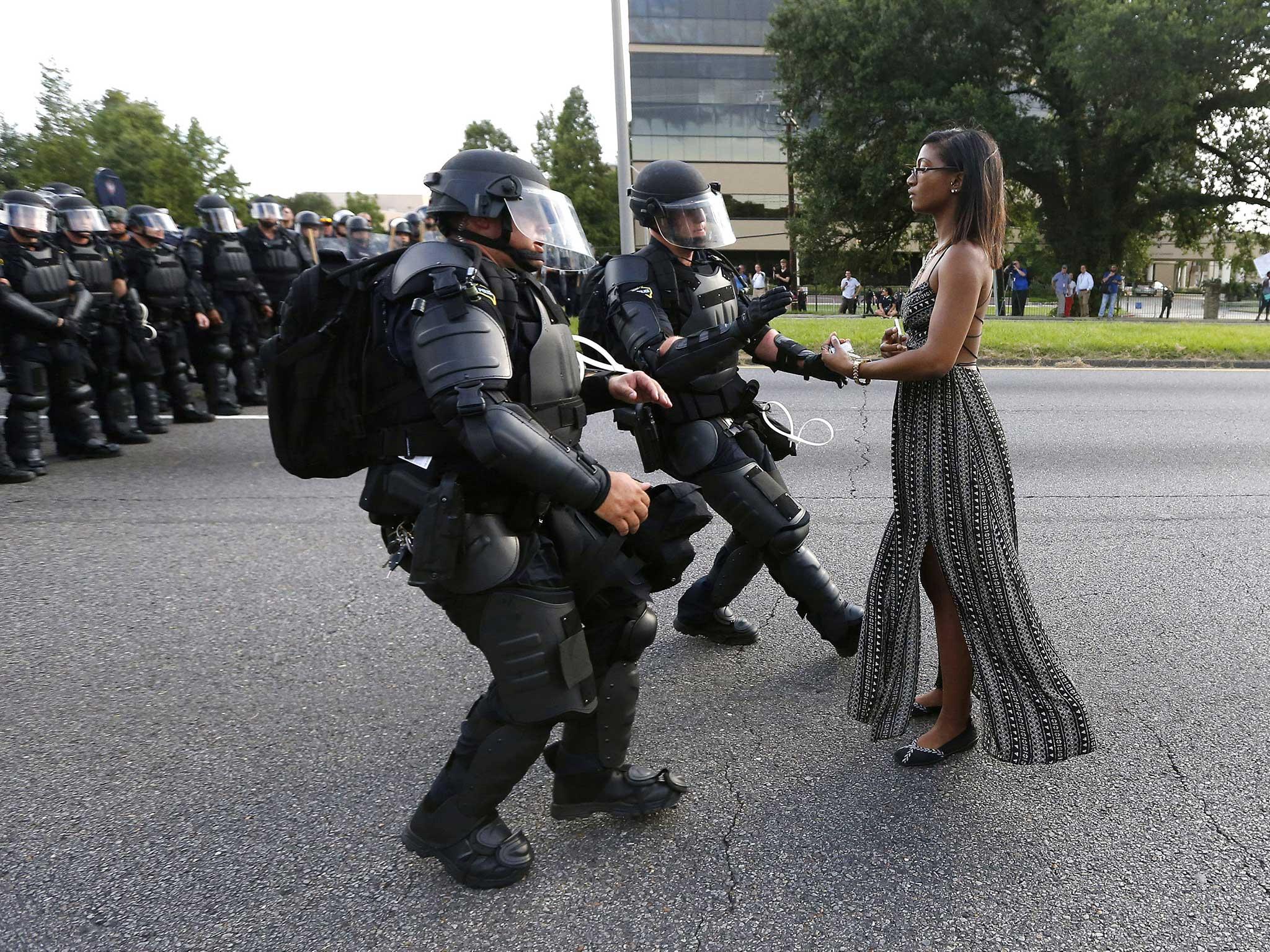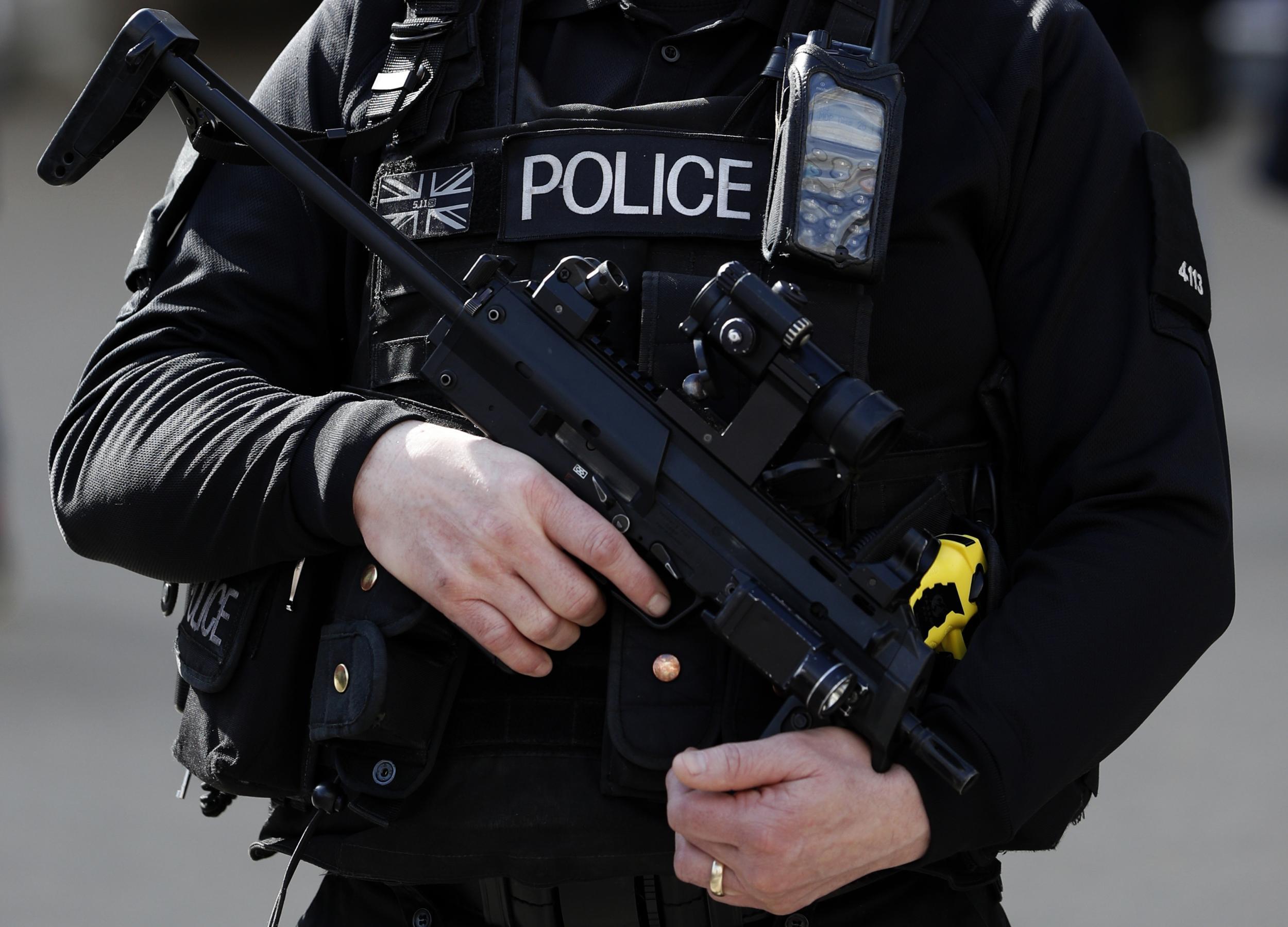Your support helps us to tell the story
From reproductive rights to climate change to Big Tech, The Independent is on the ground when the story is developing. Whether it's investigating the financials of Elon Musk's pro-Trump PAC or producing our latest documentary, 'The A Word', which shines a light on the American women fighting for reproductive rights, we know how important it is to parse out the facts from the messaging.
At such a critical moment in US history, we need reporters on the ground. Your donation allows us to keep sending journalists to speak to both sides of the story.
The Independent is trusted by Americans across the entire political spectrum. And unlike many other quality news outlets, we choose not to lock Americans out of our reporting and analysis with paywalls. We believe quality journalism should be available to everyone, paid for by those who can afford it.
Your support makes all the difference.Fatal shootings by police officers have been a major political issue in the United States in recent years. From Michael Brown in Ferguson to Freddie Gray in Baltimore, such killings, often of young African Americans, regularly lead international news headlines.
One counting project found 613 people had been killed by US police so far in 2016, as of 28 July. American police routinely carry guns, and most high profile incidents are shootings.
Official figures in the United Kingdom could not paint a more different picture. Statistics released by the Home Office – Britain’s interior ministry – show how rare it is for the UK’s police to use guns.
In England and Wales in the 12 months to March 2016, British police discharged their firearms on just seven occasions, the statistics, released on Thursday show.
This figure is actually a record, of sorts. In the same period ending in March 2013, firearms were used only three times. In the 2015 period they were used six times. Seven uses of weapons is the highest since at least 2009.
Britain’s police do not routinely carry firearms; instead, specially trained firearms officers are rapidly dispatched to incidents where a threat is reported.
Heavily armed police can also be found guarding places perceived to be likely terror targets, such as airports, government buildings, and major railway stations.
There is no equivalent overall count for the number of times police used firearms in the United States; their use is considered routine.

The Home Office notes that the statistics do not include so-called “animal destruction”, accidental discharge of guns, and – intriguingly – the shooting out of car tyres in police chases.
The number of police officers authorised to use firearms has also been falling in a long-term trend. In 2009 there were 6,906 such special officers in England and Wales; in March 2016 there were just 5,639, with a decline recorded in almost all intervening years.
The number of times armed police were actually deployed in England and Wales in the 12 month period was 12,471 – broadly flat on last year in the context of a long-term decline. But decisions on whether to open fire tend to be made through the chain of command, meaning even when police with guns arrive, a shoot-out is rare.
The United States of course has a bigger population than the UK – Britain has 64.1 million residents, the US 319 million. But on a per-capita basis, Britain’s rate of police gun use would translate into US police using their guns on 35 occasions in an entire year. This would be an unthinkably low number.
The Guardian newspaper's project, The Counted, recorded the 613 killed figure used above.
The overall picture in Britain doesn’t mean police shooting incidents do not happen. The fatal shooting by police of 29-year-old Mark Duggan in 2011 prompted an inquiry and criticisms of misconduct. The shooting of Jean Charles de Menezes also provoked controversy. Campaigners have also long highlighted statistics showing a pattern of deaths in police custody.
But the scale of such killings is undoubtedly of a different order to that in the United States.
Subscribe to Independent Premium to bookmark this article
Want to bookmark your favourite articles and stories to read or reference later? Start your Independent Premium subscription today.

Join our commenting forum
Join thought-provoking conversations, follow other Independent readers and see their replies
Comments